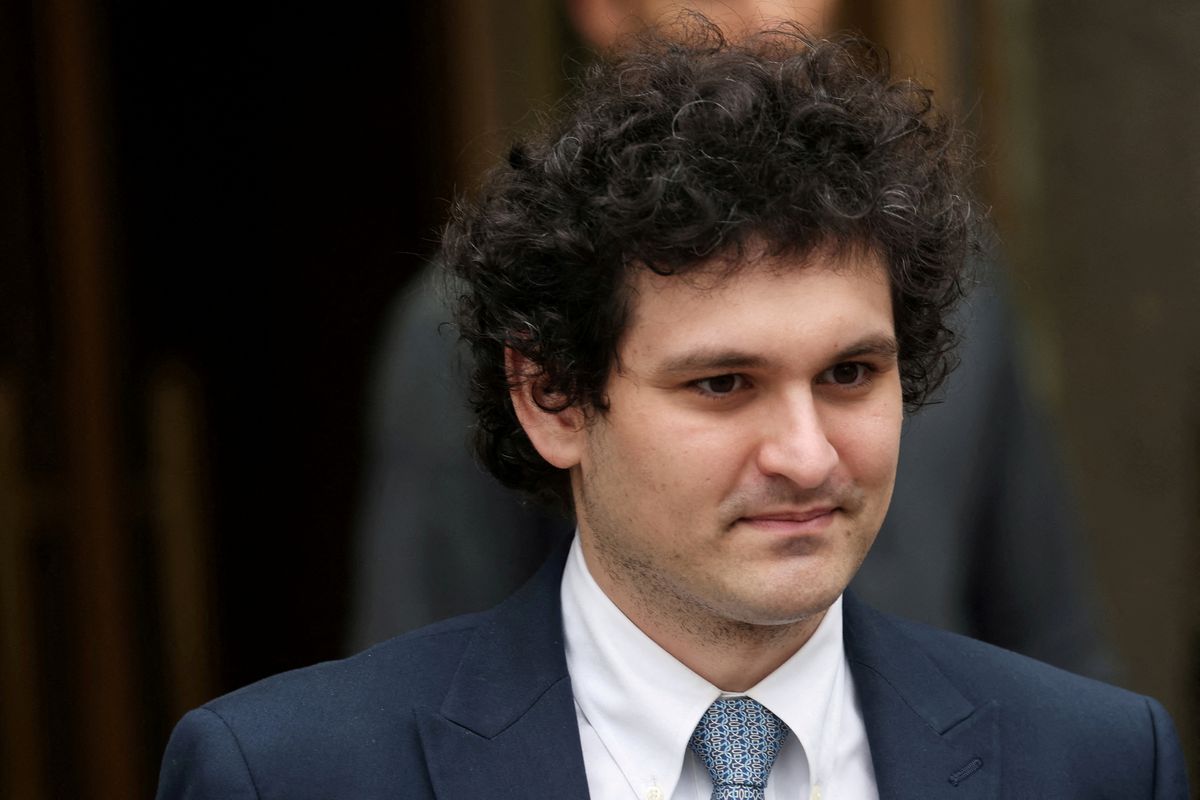FTX files US$1 billion lawsuit against founder and ex-execs to reclaim some funds
FTX has now filed a lawsuit against its founder, Sam Bankman-Fried, and three former execs, seeking US$1 billion.

A few minutes every morning is all you need.
Stay up to date on the world's Headlines and Human Stories. It's fun, it's factual, it's fluff-free.
The backstory: FTX, once the crypto world's second-largest exchange, went through a wild ride that led to its collapse last year. Its founder and former CEO, Sam Bankman-Fried, stepped down and was later arrested in the Bahamas for allegedly stealing customer funds. After being extradited to the US, he denied all allegations and pleaded not guilty. Prosecutors accused him of being the mastermind of a fraudulent scheme that led to FTX's collapse, calling it "one of the biggest financial frauds in American history."
In the midst of it all, other players like Caroline Ellison (once Bankman-Fried's girlfriend and former CEO of sister company Alameda Research) and FTX co-founder Gary Wang pleaded guilty to fraud charges last year. Meanwhile, FTX got new leadership to guide it through the bankruptcy process, with John Ray taking over as CEO. You might remember him from managing Enron after its infamous bankruptcy.
More recently: Bankman-Fried was released to house arrest on a US$250 million bail package in February, backed by his parents, their home equity and two other family friends. But the legal drama didn't end there – prosecutors hit him with a superseding indictment, handing him more charges, including allegedly violating campaign finance laws and bribing Chinese authorities with US$40 million in crypto to free up frozen assets belonging to his hedge fund. Bankman-Fried challenged five out of the 13 charges, arguing they weren't part of the extradition agreement that brought him back to the US.
Last month, a New York judge decided to split the criminal case into two trials because of the unresolved dispute over those charges added after his extradition from the Bahamas. So, there's a second trial lined up for March 2024. The idea was to preserve the agreed US diplomacy with the Bahamas while it reviews the added charges, all without holding up the original trial set for October.
The development: FTX has now filed a lawsuit against its founder, Bankman-Fried, and three former execs, seeking US$1 billion. The exchange says that Bankman-Fried and Wang took US$546 million from Alameda in May 2022, using the money to invest in Robinhood, another crypto exchange. FTX said the loans were sketchy because they didn’t require collateral and had suspiciously low interest rates. FTX also says that the execs misappropriated funds to do things like give themselves bonuses and free stock shares and call options and that Bankman-Fried was making fraudulent steps to take the company public.
This all allegedly happened before last November, when FTX filed for bankruptcy, which means the company is allowed to try and recover those payments made before its Chapter 11 filing. So, the new lawsuit is part of FTX's efforts to get some money back and repay its creditors, including those who had their crypto on the platform before its collapse.
Key comments:
“Never in my career have I seen such a complete failure of corporate controls and such a complete absence of trustworthy financial information as occurred here. From compromised systems integrity and faulty regulatory oversight abroad to the concentration of control in the hands of a very small group of inexperienced, unsophisticated and potentially compromised individuals, this situation is unprecedented,” said John Ray III, the new CEO of the bankrupt crypto exchange FTX, last year.
"I didn't knowingly commit fraud," said Sam Bankman-Fried, FTX founder, to BBC News last year. "I didn't want any of this to happen. I was certainly not nearly as competent as I thought I was."
“From 2019 through 2022, I was aware that Alameda was provided access to a borrowing facility on FTX.com, the cryptocurrency exchange run by Mr. Bankman-Fried,” said former Alameda Research CEO Caroline Ellison last year. “In practical terms, this arrangement permitted Alameda access to an unlimited line of credit without being required to post collateral, without having negative balances and without being subject to margin calls on FTX.com’s liquidation protocols.”
Editor's correction: This piece previously inaccurately stated that Sam Bankman-Fried was alleged to have bribed Chinese officials to free up US$40 million worth of frozen assets. The allegation is, in fact, that he bribed Chinese officials with US$40 million in crypto to free up accounts held by his hedge fund that contained more than $1 billion worth of digital assets. The article has been updated to reflect this correction.




Comments ()